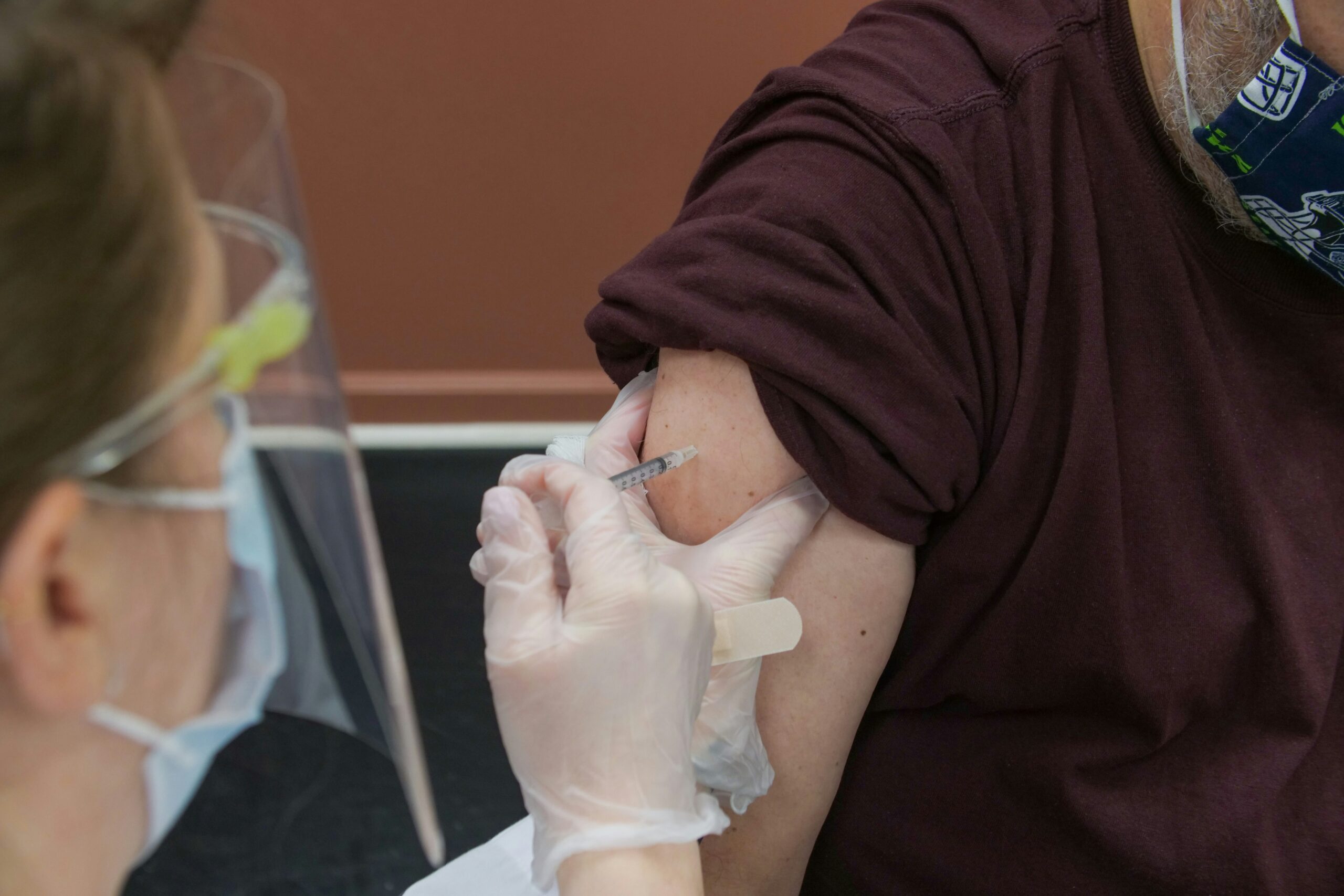What Is Percocet?
Percocet is a prescription opioid pain medication that is used to treat moderate to severe pain. It’s a combination of opioid oxycodone and acetaminophen (more commonly known as Tylenol).
However effective it is in relieving discomfort, Percocet carries with it substantial risk for dependence and abuse due to the oxycodone, which produces a euphoric high that can lead to its misuse. Because of this potential for dependence and addiction, it’s important to adhere strictly to medical guidelines when using Percocet.
How Does Percocet Make You High
The high from Percocet occurs because of the oxycodone in it. When opioids attach to receptors in your brain and central nervous system, they block pain signals significantly but also trigger the release of dopamine, a chemical naturally associated with pleasure and satisfaction.
Acetaminophen alone does not produce these euphoric effects, but when combined with oxycodone as it is in Percocet, acetaminophen enhances the pain-relieving capabilities of the opiate.
While this may provide temporary relief, it does not treat the root cause of the pain.
What Does A Percocet High Feel Like?
The high from Percocet occurs because of the oxycodone in it. When opioids attach to receptors in your brain and central nervous system, they block pain signals significantly but also trigger the release of dopamine, a chemical naturally associated with pleasure and satisfaction.
Acetaminophen alone does not produce these euphoric effects, but when combined with oxycodone as it is in Percocet, acetaminophen enhances the pain-relieving capabilities of the opiate.
While this may provide temporary relief, it does not treat the root cause of the pain
Affects Of Percocet
Opioids bind to and activate the opioid receptors on nerve cells in the brain and nervous system. Due to its addictive nature, increased Percocet use can cause long-term brain damage. The impact on the brain depends on the duration and amount of Percocet misuse.
Some of the long- term effects on the brain include:
- Opioid-induced hyperalgesia – Increased sensitivity to pain
- Frontal Lobe damage
- Impulse control issues
- Disrupted reward system
The long-term effects of a Percocet addiction on the brain worsen the longer the drug is abused and could lead to irreparable damage.
How Long Does A Percocet High Last?
The duration of a Percocet high can vary. When taken as prescribed, the most intense part of the high occurs within one or two hours after taking it. This initial rush is usually followed by several hours where pain relief and some mild euphoria may be felt, though less intensely than during the peak.
Signs Someone Is High On Percocet
If you’re concerned that someone may be high on Percocet, here are some warning signs to watch out for:
- Unusual drowsiness or inability to stay awake
- Noticeable confusion or disorientation
- Nausea and vomiting without a clear cause
- Altered breathing patterns, especially slowed or shallow breathing
- Periods when they seem to drift in and out of consciousness (“nodding out”)
- Constricted “pinpoint” pupils even in low light
Beyond the immediate signs of being high, additional indicators may suggest a person is abusing Percocet. If you notice that someone you live with or are around a lot is engaging in the following activities, they may be abusing Percocet:
- Regularly taking the medication in higher doses or more frequently than prescribed
- Taking medication that has been prescribed for someone else
- Using the medication in a form not intended by medical professionals, such as crushing pills to snort or inject
- Seeking prescriptions from multiple doctors, a behavior commonly referred to as “doctor shopping”
- Withdrawing from family and friends or losing interest in activities they used to enjoy
If you recognize these warning signs in someone you know, it might be time to voice your concerns for their wellbeing and discuss seeking professional help to address a potential Percocet addiction.
Are Percocet Addictive?
Percocet, like other opiates, presents a high risk of addiction. Patients may start developing a tolerance, which leads to needing higher dosages to achieve the required pain relief. Patients end up becoming dependent which could lead to addiction.
Some of the symptoms and signs of Percocet addiction include:
- Nausea
- Constipation
- Lightheadedness
- Unable to feel emotions
A 2020 report released by the Centers for Disease Control and Prevention (CDC) showed that of the nearly 92,000 drug overdose deaths that occurred in the United States in that year, 75% involved an opioid.
Signs Of A Percocet Overdose
The danger of an overdose on Percocet is severe and life-threatening. Indicators of a potential overdose often include the following critical signs:
- Pinpoint pupils that do not respond to changes in light
- Severe respiratory depression, where breathing becomes increasingly shallow or slow
- Coma or unresponsiveness, which can happen when the brain is deprived of oxygen due to reduced breathing function
- Death
It’s critical that if you suspect someone has overdosed on Percocet or any opioid, you act immediately. Opioid overdoses can suppress breathing to the point of stopping entirely – respiratory arrest – which then leads to brain damage or death due to lack of oxygen.
Call 911 right away, as time is of the essence in such emergencies. If Narcan (naloxone) is available and you know how to safely administer it, you should take this step while waiting for emergency services.
Long Term Effects Use Of Percocet
After the initial high from Percocet wears off, numerous physiological changes can occur as your body returns to its baseline:
- The decrease in euphoria is often noticeable as the opioid levels decline in the bloodstream
- Nausea that was possibly suppressed during the peak effect might emerge or intensify
- Increased pain sensitivity may also manifest because your body becomes accustomed to pain relief provided by the medication
- Early onset of Percocet withdrawal symptoms could kick in if there’s a pattern of regular use; these include muscle aches, restlessness, anxiety, irritability, and nausea and stomach cramps, among others.
The severity and duration of the withdrawal symptoms from Percocet are influenced by several individual factors. These can include the dose taken, the frequency of use, individual metabolism, and whether Percocet was taken with other substances or alone.
Long-term Percocet dependency can cause:
- Decreased testosterone levels, impotence, and erectile dysfunction
- Prostate problems
- Respiratory depression
- Low blood pressure
- Death
Patients should not try to overcome a Percocet addiction by themselves. The possibility of having severe withdrawal symptoms is high and often leads to relapse or even overdose.
Percocet And Alcohol Use
Mixing alcohol with any medication is never advised, mixing Percocet with alcohol can be particularly dangerous. Combining alcohol with either oxycodone or acetaminophen individually can cause harmful symptoms, when taken together, the risks become even greater. Oxycodone, the addictive component of Percocet, and alcohol are central nervous system (CNS) depressants, which slow down brain activity. Combining oxycodone with even a small amount of alcohol can be harmful. The acetaminophen component of Percocet when combined with alcohol may result in acetaminophen-related liver damage.
Treatment For Percocet Addiction
If you or someone you care about is struggling with Percocet abuse, a comprehensive treatment plan is vital to begin the road to recovery. Here’s a breakdown of what this treatment typically involves:
Detoxification: The initial step is safely managing withdrawal symptoms through medically supervised detox, ensuring the body safely rids itself of Percocet while health professionals manage any discomfort or complications through medications and supportive care.
Treatment Facility: Following detox, admission to a drug treatment facility significantly increases the chances of a successful recovery. Individual therapy with professionals can uncover the root causes of addiction and initiate healing. Group therapy in the treatment facility is also integral, as it provides a safe space for individuals to receive peer support and exchange experiences with others who are on similar paths towards sobriety.
Aftercare and Relapse Prevention: Leaving a treatment facility is just the beginning of a lifelong journey. After comprehensive Percocet treatment, it’s important to stay committed to aftercare and relapse prevention. This should include coming up with a long-term plan, which often includes ongoing counseling, support group meetings like Narcotics Anonymous (NA), or other structured activities to sustain the progress made during treatment.
Overcoming Percocet abuse takes dedication and a structured, treatment strategy designed to ensure safety during detoxification and instill lasting behavioral changes.
At Lakeview Health, we strive to make sure patients at our men’s rehab center and women’s rehab center have the best chance of achieving lasting sobriety. Our approach to care is focused on the individual and we are committed to the well-being of our patients, even after they’ve left Lakeview Health. Some of our programs include:
- Residential treatment
- Inpatient services
- IOP
- Medical detox
- Aftercare
- Partial hospitalization
If you or a loved one need help overcoming a Percocet addiction, call Lakeview Health today at: 866 704 7692.




